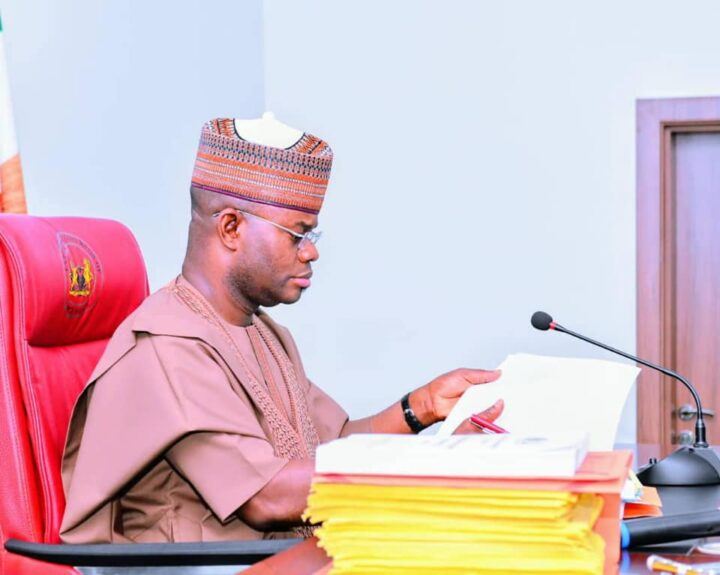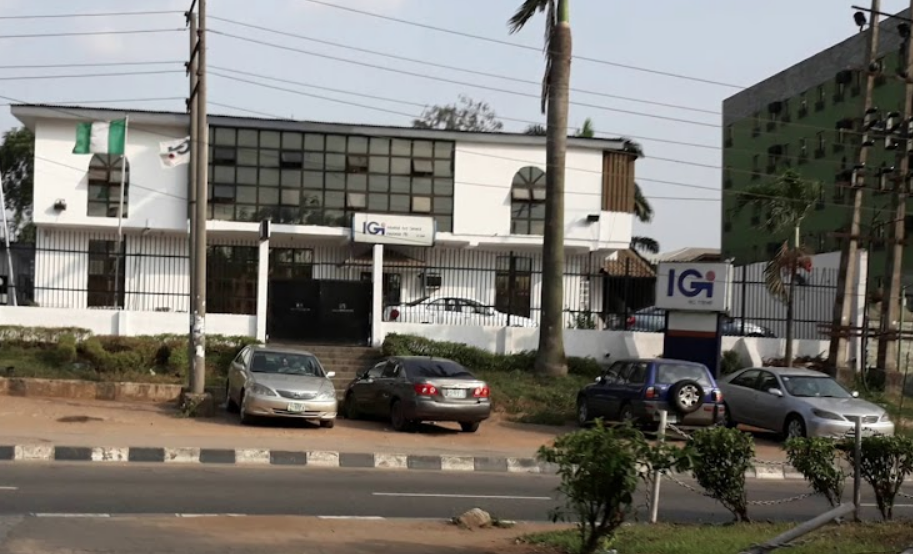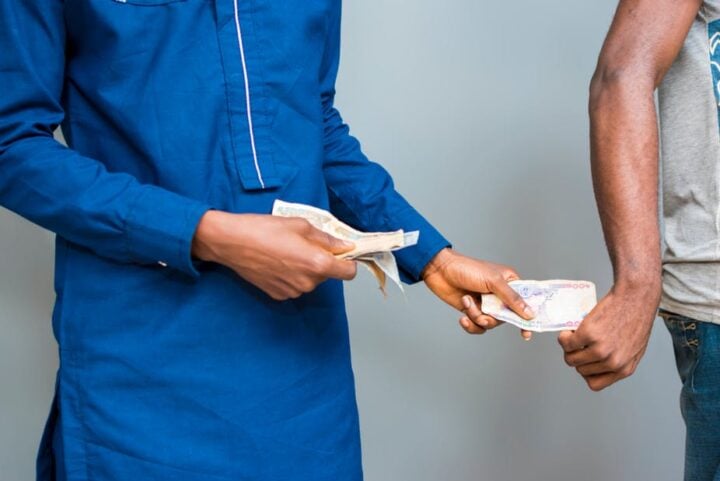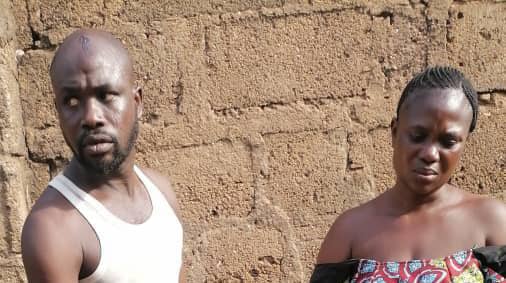Even though the All Progressives Congress (APC) has repeatedly denied zoning the position of chairman to the north-central, there’s hardly any credible analysis that does not feature candidates from the zone in the first three spots.
Days to the party’s first national convention in four years, there is growing public interest in the outcome of the convention, because how it ends may not only indicate if the party is over, it might also provide an indication of who the party’s flag bearer would be for next year’s presidential election.
The opposition Peoples Democratic Party (PDP) has been a bit more open in dealing with this demon. The mood in the party is to throw the thing open. After decades of treating zoning as sacrosanct, stalwarts in the opposition appear to have seen the light, declaring that irrespective of where the party’s chairman may come from, the presidential ticket would go to the best candidate, sparking a rash of interests across the six zones.
Despite mixed reactions about zoning in the ruling party, no one can say for sure that it would follow the opposition’s example. If the APC plays the zoning card on February 26, as is widely expected, and concedes the chairmanship to the North Central, that could significantly complicate the presidential ambition of the most visible contender from the zone – Governor Yahaya Bello – even before he has formally and publicly declared his intention to run.
Advertisement
One of the earliest candidates to show interest in the race, Bello stuck his head out when those considered to be heavyweights – or ‘owners of Nigeria’, to borrow Dele Momodu’s remix of Oliver De Coque (Ana Enwe Obodo), were still lying low.
For many who thought his ambition was an insolent joke – and that includes me – it would be interesting to see how he rallies after the party’s convention, especially if a candidate from his zone, the North Central, gets the party chair.
But he thinks he can get it – and will – irrespective of where the party fetches its chairman. In its nearly eight years of existence, neither the APC nor the legacy parties that formed it, has chosen both its chairman and presidential candidate from the same zone.
Advertisement
In the last 23 years, in fact, the only major party that has bucked the trend is the All Progressives Grand Alliance (APGA) in 2003, when the party presented Odumegwu Ojukwu as its presidential candidate, even though Chekwas Okorie was chairman. But that was understandable: APGA is a regional party.
The APC has, in fact, treated zoning with the same fetishism with which it has religion, insisting that its flag bearer and his deputy, for example, cannot be of the same faith. Yet, Bello insists that neither zoning nor faith is a mountain too high to climb. When the issue came up at a recent meeting, he said that whichever way the party sliced it, it would still fall to him, something which one of those present described as audacious, if not dangerous optimism, but a view he disagreed with.
“You know what they say about two dogs fighting over a bone,” Bello said. “The third simply picks it up without much effort. That is what is going to happen with the APC presidential ticket. Watch.”
Perhaps, and that, with a capital P. Anyone familiar with the wheeling and dealing, the horse-trading, the incredible cash outlay (some have estimated it at nearly N10 billion), and the sheer jiggery-pokery involved in selecting the presidential flag bearer of a major political party in Nigeria, might agree that it’s not a boy’s playground.
Advertisement
So far, in the APC alone, the heavyweights range from Asiwaju Bola Ahmed Tinubu to Vice President Yemi Osinbajo and from Governor Kayode Fayemi to Governor David Umahi, Senator Orji Uzo Kalu, and Rochas Okorocha. Even the Transport Minister, Rotimi Amaechi, has been mentioned. And in the last few days, there has been a renewed buzz that the APC is paving the way for former President Goodluck Jonathan to decamp from the PDP and potentially carry the party’s flag.
It is against this line-up of veterans, hardened by the tempestuous and treacherous waters of Nigerian politics that Rookie Bello would now go to war and hope to succeed. If he is banking on luck, the cousin of hope, perhaps he has a reason to do so.
Seven years ago, during the APC governorship primary, Bello came a distant second to the late Abubakar Audu before two crucial events changed the course of Kogi politics. Luck played a major role, which he is hoping might repeat itself.
The Independent National Electoral Commission (INEC) declared the state’s governorship election inconclusive and then Audu, who was already declared winner in the majority of local government areas, died on November 22, 2015, before a scheduled date for a rerun.
Advertisement
Audu’s party, the APC, had two choices before it: to replace Audu with his running mate, James Faleke, or with the runner-up to Audu during its primary, Bello. APC went for the latter, and the dynamics of Kogi politics have not remained the same. Although Faleke protested the decision and challenged it in court, his grievances fell on deaf ears at party level and his legal action was unsuccessful.
This time, Bello insists he is banking on much more than hope or luck. Age, he says, is also on his side and would be a serious issue in the next election, at which his backers respond with thunderous chants of, “It’s youth o’clock! It’s youth o’clock!!”
Advertisement
Bello, the youngest governor in Nigeria and the only governor to be born after the Nigerian civil war, has since completed his first term and was reelected in November 2019 for a second term, which he must now juggle with his presidential ambition.
Yet, age is neither a measure of folly nor is it a guarantee of performance. Bello insists that, against the odds, he has performed. The first Kogi governor from Ebiraland, a minority within minority ethnic groups, said he has exorcised ghost workers from the payroll, which cost the state N213 billion in 13 years of leakages, cleared the outstanding backlog of salaries which amounted to about N18 billion, smashed criminal gangs and made the state safer, and established a reputation of publishing the monthly accounts on the state’s website.
Advertisement
And on top of this, he prides himself on being a party man to the core, with an inside track to the king and also the kingmakers (except, of course, a notable one located to the North of his state, whom he said is a sworn enemy).
While he thinks his record qualifies him to run for a higher office, his opponents think that it is largely because of the same record that he is unfit to run. His face-off with EFCC over the alleged diversion of N20 billion bailout state funds, his bizarre and unpopular posture on vaccines and cattle grazing routes, and his exuberant, almost gangster-like political style, cultivated in his early days in office, is often cited as proof that he is unsuitable for higher office.
Advertisement
Bello insists this baggage is an invention of his enemies, “especially powerful vested interests” who are afraid that his candidacy would end the era of business as usual. “They know I’m not beholden to any special interests, they know that they have nothing on me because I’m a child of destiny; I’m focused on serving the mass of the people,” he said. “You call it baggage; I call it a panic attack.”
Those for or against Bello won’t have to wait for too long before they find out whether there is any reserve left in the tank of his luck. By the time the party’s convention is over in about two weeks, it would be clearer if the governor has remade his own luck after six years or if, like lightning, his luck only struck once.
Ishiekwene is editor-in-chief of LEADERSHIP
Views expressed by contributors are strictly personal and not of TheCable.
Add a comment







